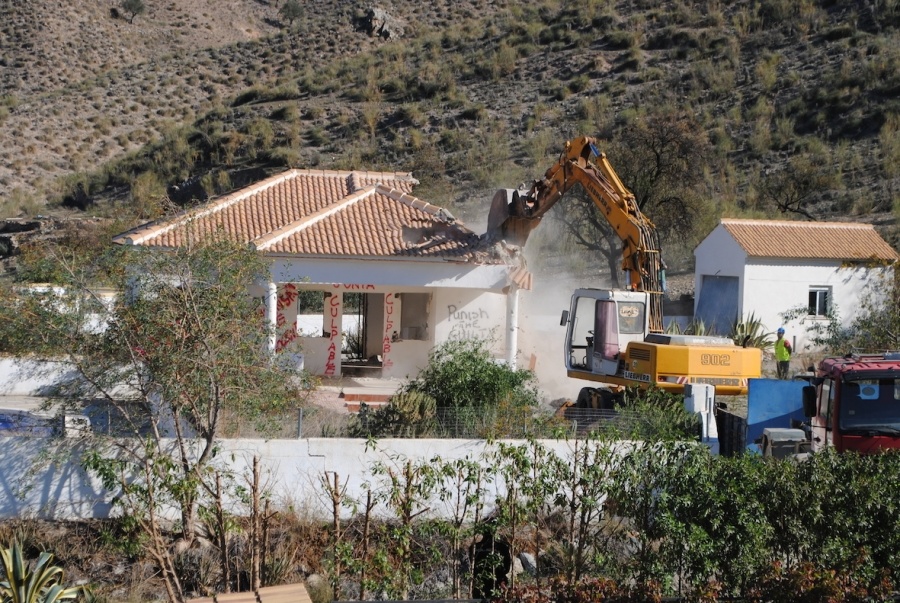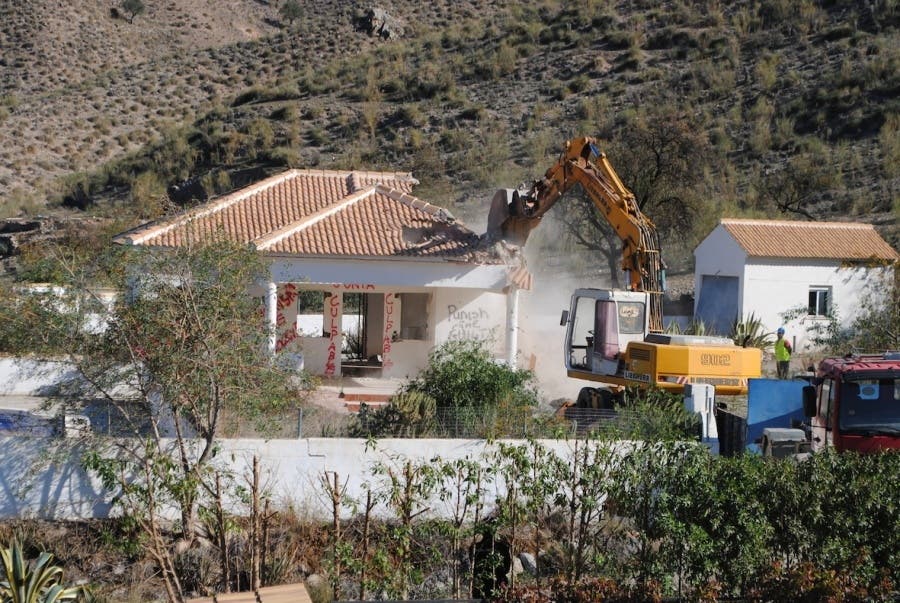
THE OWNERS of illegal properties in the Valencian village of Lliber are cautiously optimistic that their decades-long battle to regularise their homes may finally be nearing a positive outcome.
On the day that a meeting was held last week in the municipality to provide residents with information about a regional scheme that can legalise the nearly 300 irregular properties there, the local council made a commitment to grant new so-called MIT licences.
‘The meeting last week was the best one I’ve been to with the mayor present in 22 years,’ Adrian Hobbs, the president of the campaigning association Abusos Urbanisticos Lliber No (AULN), told The Olive Press. ‘But you’re not seeing me dancing around like a mad lunatic with happiness, because I’ve been here before,’ he warned.
In 2019, the leftist regional government passed the LOTUP law which lead to both the creation of the Valencian Agency for Territorial Protection (AVPT) and the MIT licences, aimed at solving the problem of houses that were built on rural land without the proper licence and that have since been left in a legal limbo.
Funding is available for municipalities to address this issue, but figures from the regional government itself suggest the uptake has been very low so far, with just 26 of the 542 municipalities having requested funding, leaving more than 95% of town halls still yet to put in a request.
The regularisation of these illegal houses built on green-belt land can be achieved through what are known as Territorial Impact Minimisation Licences (MIT). These legalise the property in question in exchange for a guarantee that the impact of environmental factors such as sewage disposal and potential dangers such as fires in the surrounding area are minimised.
John Kirby, a former municipal architect who has lived in Spain for 28 years, has been tasked by the region with getting the message out to the victims of this situation of how the new system works.
Defective system
‘The tradition was that there was a plot of land, and someone would build something,’ he explains. ‘Nothing would happen if it wasn’t outlandish. That went on for years. The problem began in the last few decades when these properties were sold to foreigners.’
Virtually all of these buyers thought that they were purchasing something legal because the house appeared on the property register. But a defect in the Spanish system meant that illegal builds could be bought and sold, but then could not be legally occupied or even maintained. The future of their property was condemned to either natural wrack and ruin, or voluntary demolition.
The lack of an occupation licence for these houses means that you cannot connect utilities, cannot sign up to the municipal roll, and as a result cannot access public services or vote in local elections.
Kirby estimates that there are 194,000 of these illegal properties in the Valencia region alone.
‘We calculated that from all those hundreds of thousands of properties, fewer than 2,000 need to be knocked down. If the town halls play ball, the other 192,000 can be legalised,’ he says.
But as the residents of Lliber in Alicante province have found out, there has been resistance. The town is home to one of the most famous cases of illegal properties, with some 292 such houses built around 20 years ago. Buyers were convinced they were buying something legal, but the licences all turned out to be irregular.
Criminal case
The case ended up in the courts in 2009, with members of the Popular Party local council – including the current mayor – implicated. This criminal case is still going on, and insiders believe that the council has been dragging its heels over the MIT licences while it waits for a ruling.
Adrian Hobbs is one of the homeowners in Lliber.
‘When we got round to moving in we said, where is the paperwork?’ he explains. ‘We were told there’s been a bit of a problem, but don’t worry, everything takes a long while in Spain. Four years down the road, we started getting pissed off. And as we started digging, things started coming to light.’
Members of the victims association spent anywhere between €250,000 and €1.5 million for their properties, and were left without a shred of paper.
Time is ticking on, with many of the victims – who hail from not just the UK but also the Netherlands, Germany, Belgium and Spain – now in a different phase of their lives.
‘Before, people were making retirement plans,’ explains Hobbs. ‘Now these people are in their eighties or their late eighties, and they want to go back to their homeland. They are making end-of-life plans. They go to sell and find out their paperwork is still not in order.’
Numbers have also declined due to people passing away, but this simply means the problems become the responsibility of inheritors of the properties.
Positive spin
The association is due to meet with the council on Friday. The mayor of Lliber, Jose Juan Reus, put a positive spin on the situation in conversation with The Olive Press. All that residents have to do is request the licences, he said, adding that the ‘process will be quick’.
‘No one has a greater interest to see the situation resolved than I do,’ he said.
Hobbs, meanwhile, is still sceptical. ‘I’ll tell you in three week’s time if that line plays out,’ he said of the mayor’s promises.
At least the AULN president is able to look at the situation with a typically British sense of humour. ‘If I don’t pick up the phone next week it’s because I’m dead,’ he quipped.
Read more:

